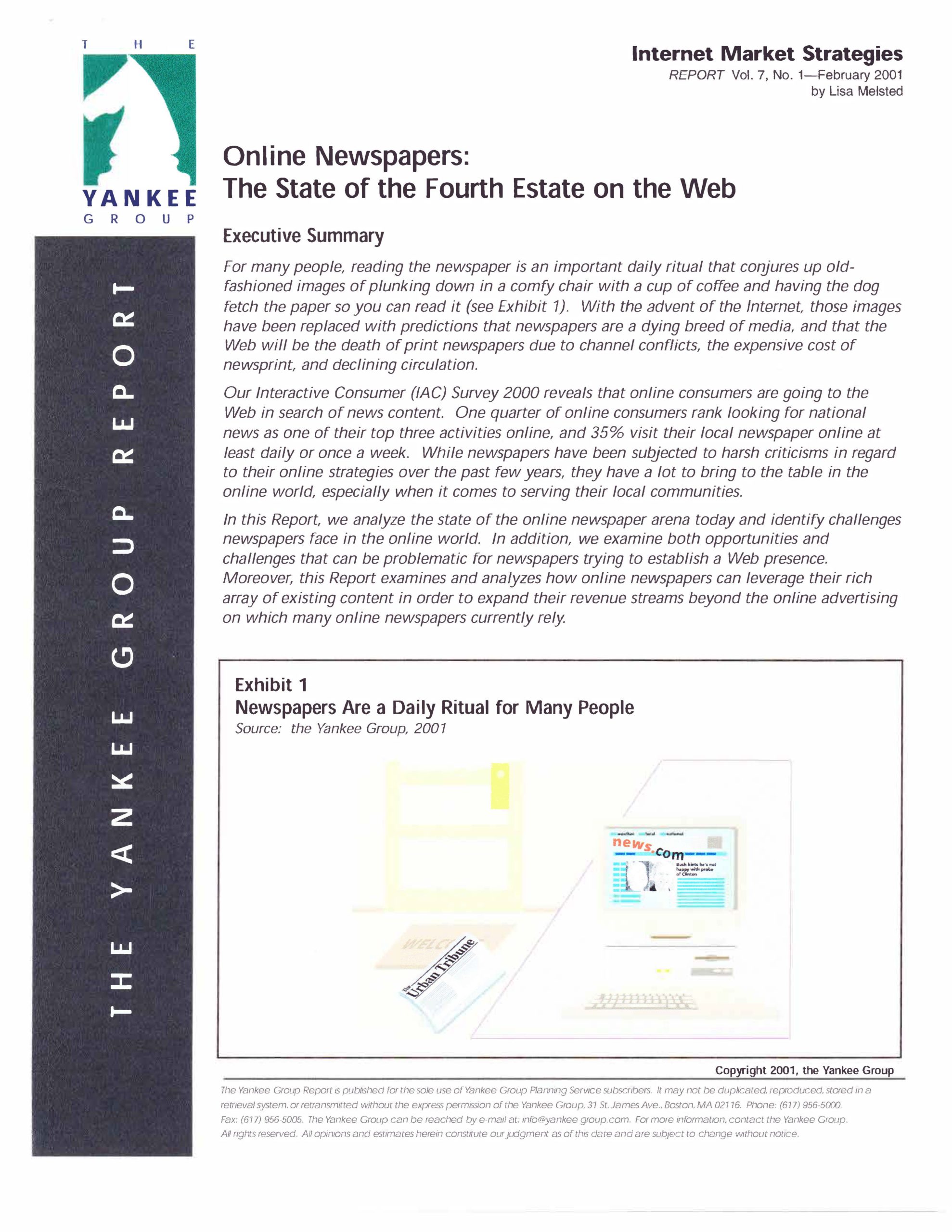State of Newspapers on the Web, 2001
A 2001 report by the research company The Yankee Group has some very interesting observations about the future of the print media in the online world. From the summary:
Our Interactive Consumer (IAC) Survey 2000 reveals that online consumers are going to the Web in search of news content. One quarter of online consumers rank looking for national news as one of their top three activities online, and 35% visit their local newspaper online at least daily or once a week. While newspapers have been subjected to harsh criticisms in regard to their online strategies over the past few years, they have a lot to bring to the table in the online world, especially when it comes to serving their local communities.
A very optimistic view of the ability of many newspaper publishers and companies to leverage their content into a new medium. The report correctly, in my opinion, highlighted some of the challenges that newspaper companies face:
-
Commoditization: The immediacy and dynamic nature of Web content has pushed journalistic deadlines to seconds rather than minutes and has made news so readily available that not only is it “old” as soon as it is posted to a Web site, but it has become a commodity. We are reaching a point when consumers can get their news whenever and however they want it. This poses a significant threat to print newspapers because consumers have more sources to turn to for their news than ever before.
-
Sluggish Migration of Newspapers to the Online Channel: Although some newspapers such as the San Jose Mercury News, which started publishing its Mercury Center site (now known as bayarea.com) online through AOL in May 1993, are considered by many to be Internet pioneers in the newspaper industry, others have been slower to develop their online strategies. The Newspaper Association of America estimates that approximately 10% to 20% of all daily newspapers still do not have an online presence.
-
Cannibalization of Subscription Revenues: One of the most serious charges levied against online newspaper editions over the past few years is that of cannibalization. By offering news online for free, newspapers–so the theory goes–are in effect cannibalizing and killing their print sales channel. In addition, most of the content offered in the print edition is also offered online. Given this situation, why would consumers choose to maintain a subscription to the print edition when they can receive the newspaper online for free? This argument has also fueled speculation that the Internet will cause the demise of the print newspaper industry.
Interestingly, the report didn’t write much about the cannibalization of advertising revenues, especially classified advertising.

 jupiter online newspapers 2001 report
jupiter online newspapers 2001 report